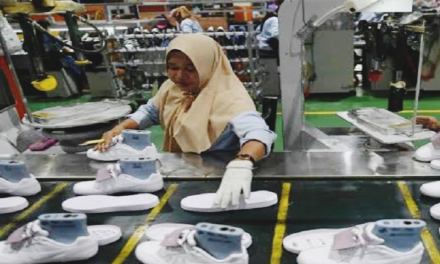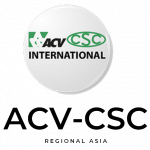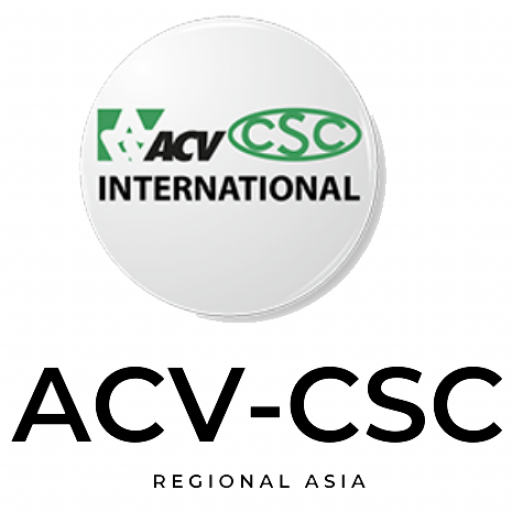
Profile of PT. Pertiwi Indomas
Established in 1998. Pertiwi Indomas Limited Liability Company, which was established based on the deed of Notary Eliawati Hostiadi, SH who is domiciled in Klepu Village, Pringapus District, Dati II Regency, Semarang.
PT. Pertiwi Indo Mas is a company operating in the garment industry. We focus on quality with quality raw materials so as to create products that are respected by the market.
The company prioritizes its vision and mission and continues to make improvements and create the latest ideas in its business processes. Of course, service by professional staff always provides solutions and contributions to customer comfort and satisfaction.
ANALYSIS PT. PERTIWI INDOMAS
Initial note: Since the first articles, the PKB has mentioned SPN a lot. Is this a draft or PKB belonging to
SPN?
- Freedom of Association
Best Practices
1.1. Article 7 GUARANTEES FOR TRADE UNION OFFICERS (1) The Employer gives permission to each
Trade Union administrator to carry out their obligations without prejudice to their rights. (2).
Employers will not apply direct pressure or discrimination against Trade Union Representatives.
1.2. Article 8: 2: Employers provide appropriate office space including equipment and supplies as
well as rooms for meetings, hearings, conferences that are adapted to the capabilities of the
Company and the Workers’ Union will use it as best as possible in accordance with its function
Bad practice regarding freedom of association
1.3. Article 9 APPROVAL OF TRADE UNION DUEES, article (1). Employer agrees to collect
Trade Union dues based on AD ART (2), each member is required to pay a minimum
contribution of 0.5% per month from the local UMK.
*.The idea does not require the approval of employers, the language should be that the
company will help with the deduction of union dues through a check of system.
1.4. Article 13 CLASSIFICATION OF WORKERS 1. Employers are obliged to arrange the classification
and ranks of workers so that an atmosphere of orderliness and excitement at work is created
based on: a. Education. b. Job/position requirements. c. Experience/expertise. Classes of
workers according to position levels in the Company are as follows: a. Main Director g.
Assistant Supervisor. b. Factory Manager h. Senior Staff c. Manager i. Operator d. Head of
Section j. Helper / officer e. Chief Supervisor f. Supervisors.
*Unfortunately this article does not explain in detail the structure of the wage scale.
1.5. Article 36 PROCEDURES FOR SETTLEMENT OF COMPLAINTS (1) In the first stage,
complaints are conveyed between the worker concerned and his immediate superior
and the workers’ union management. (2). If there is no resolution at this stage, proceed
to the level of Head of Department together with the Worker concerned with the Head
of the Worker’s Union and the Employer or his/her appointed representative, at this
stage the effort must be made to resolve it, which is an effort to resolve it through
Bipartite Deliberation. (3). If the above stages do not provide a resolution, the complaint
can be resolved in a tripartite manner, namely by deliberation between the Employer
and the Trade Union and the local Manpower Service based on the applicable laws and
regulations.
*. Stages of good dialogue involving Labor Unions
Translated from Indonesian to English – www.onlinedoctranslator.com - Wages
Bad practice regarding wages:
2.1. Article 17 NOT COMING TO WORK AND LEAVING JOB (1) Workers are not given a salary,
in the event that the worker does not come to work as follows: a. Absent (not coming
to work without permission). b. Not coming to work for reasons that cannot be
accounted for. c. Permission not to come to work outside of a special permit. (2). The
calculation of daily salary deductions for workers who are absent based on the 3 points
above is: Basic salary divided by 21 (for 5 working days) Basic salary divided by 25 (for 6
working days) (3). Workers who leave work (other than being sick) for less than 50% of normal
working hours will still receive a salary based on (Wages: 21 : 8) X number of hours worked.
*. Reduction of salary due to absence from work for certain reasons, does not fulfill
respect for basic wage rights and decent work principles, because punishment can be
through written sanctions and is usually accommodated in the elements of work
assessment which can have an impact on career/promotion or wage increases. - Social Security
Normative - Gender
- OSH, including elements of Climate Change and Just Transition
Best practice, CBA Regulates the chapter on Occupational Safety and Health (OSH)
included in CHAPTER VI WORK EQUIPMENT AND SAFETY, Article 30 WORK EQUIPMENT
Article 31 COMMITTEE FOR DEVELOPING OCCUPATIONAL SAFETY AND HEALTH (P2 K3)
- About
- About2
- Activities
- Agreement / Collaboration
- Benchmarking CBA
- Benchmarking CBA F HUKATAN
- Benchmarking CBA FPE
- Benchmarking CBA FSB GARTEKS
- Benchmarking CBA FSB KAMIPARHO
- Benchmarking CBA FSB KIKES
- Benchmarking CBA of PT Indonesia Wacoal
- Benchmarking CBA PT C-Site Texpia
- Benchmarking CBA PT Shin Hwa Biz 2 (SHB 2)
- Benchmarking CBA PT. Ching Luh Indonesia
- Benchmarking CBA PT. Hwaseung Indonesia
- Benchmarking CBA PT. Parkland World Indonesia 1
- Benchmarking CBA PT. Parkland World Indonesia 2
- Benchmarking CBA PT. Parkland World Indonesia 6 Rangkasbitung
- Benchmarking CBA PT. Ricky Putra Globalindo
- Campaign
- Digitalization / Artificial Intelligence (AI)
- Event
- Event 2024
- Event 2025
- HRDD Asessment Cement
- Issues
- Join Us
- Landing Page
- Newsroom
- Project2
- Targeted MNCs

